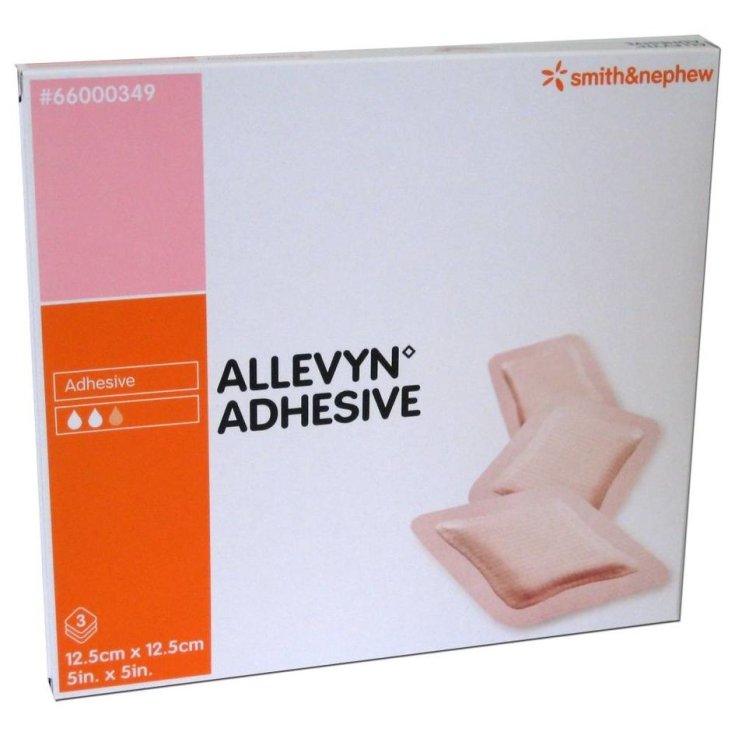Allevyn Adhesive 12,5x12,5cm 3
25.08€
25.85€

- Brand: SMITH & NEPHEW Srl
- Product Code: 901603833
- EAN: 5000223422356
- Availability: In Stock
- Purchase 3 items for 24.58€ each
- Purchase 4 items for 24.08€ each
- Purchase 5 items for 23.58€ each
Allevyn Adhesive
ADHESIVE HYDROCELLULAR DRESSINGIndications:
Intentional management of acute and chronic lesions - partial thickness, total or superficial - granulating and exuding, such as pressure ulcers, venous leg ulcers, infected wounds, diabetic foot ulcers, tumor lesions, surgical wounds , 1st and 2nd degree burns, donor sites and fungiform ulcers. It can be used in combination with Intrasite Gel for necrotic or fibrinous lesions.
How to use:
select an appropriate size dressing. Prepare, cleanse and dry periwound skin. Remove the protective paper and fix the dressing, place the dressing on the wound, completely removing the protective film: make sure that the edges are well adhered to the skin surrounding the wound.
At the start of treatment, Allevyn Adhesive should be checked frequently. The dressing can be left in place for up to 7 days depending on the amount of exudate.
To remove Allevyn Adhesive dressings, lift one corner and remove by pulling back, then rolling the dressing on itself. To facilitate the removal of adhesive dressings, sterile water, saline solution or Remove wipes can be used.
Characteristics:
- comfortable adhesive dressing with rounded edges
- does not adhere to the wound,
- impermeable to liquids and bacteria,
- highly absorbent, soft and comfortable,
- promotes rapid healing.
Warnings:
do not apply in combination with oxidizing agents such as hypochlorite or hydrogen diperoxide solutions, as these products risk damaging the hydrocellular structure. As in the case of other adhesive dressings, excessive sensitivity to Allevyn Adhesive has only rarely been reported in the form of irritation and / or maceration of the periwound skin. Cases of sensitization have rarely been reported.
Too frequent dressing changes or incorrect application, especially in the case of patients with particularly fragile skin, could damage the skin itself. In case of redness or sensitization, stop treatment and consult your doctor.
Cod. 66000349/6600045/6600046/66000348

